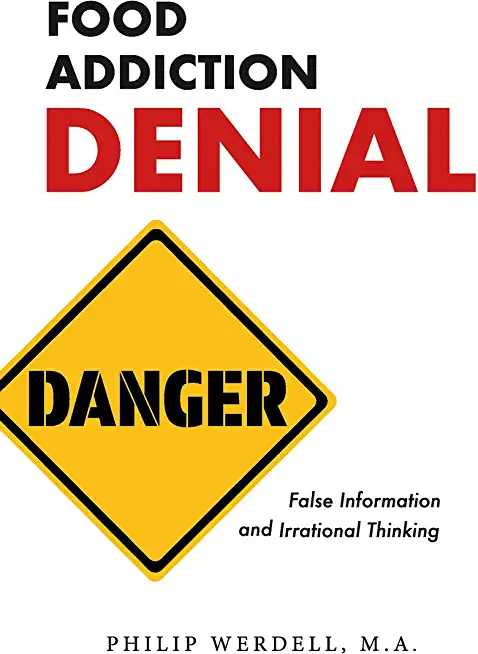
Werdell M. a., Philip
product information
description
4Denial is a major characteristic of addiction, and it is certainly a key problem when it comes to chemical dependency on sugar and other hyper-processed foods. Denial is an issue of consciousness. A major aspect of food addiction is that those who have it do not think they have it, and those who are treating it professionally do not think that it is a serious problem. Food addiction begins with physical craving. Physical craving distorts the hunger instinct for some people, making these people want more food than they need. This physical craving is a biochemical brain change caused by extra sugar or other hyper-processed foods. When this craving occurs, food addicts experience a slow but steady increase in their attraction to their trigger food. There are three levels of food addiction denial: 1) cognitive denial, which is when facts are inaccurate and reasoning is incorrect; 2) biochemical denial, where addictive foods, e.g., sugar, flour, caffeine, etc., create physical craving, mental obsession, and an addictive personality; 3) social or institutional denial, where people with power in institutions central to our society's food supply hurt consumers (sometimes intentionally, sometimes unintentionally), then come up with arguments to normalize these practices and build them into the woodwork such that the very fabric of society becomes toxic. This book starts at the beginning and is primarily about cognitive food addiction denial. Biochemical and social/institutional food addiction denial are summarized in appendices A and B. If you or someone you know is struggling with food dependency issues and questioning whether food addiction is real, this book is for you.
member goods
No member items were found under this heading.
Return Policy
All sales are final
Shipping
No special shipping considerations available.
Shipping fees determined at checkout.







